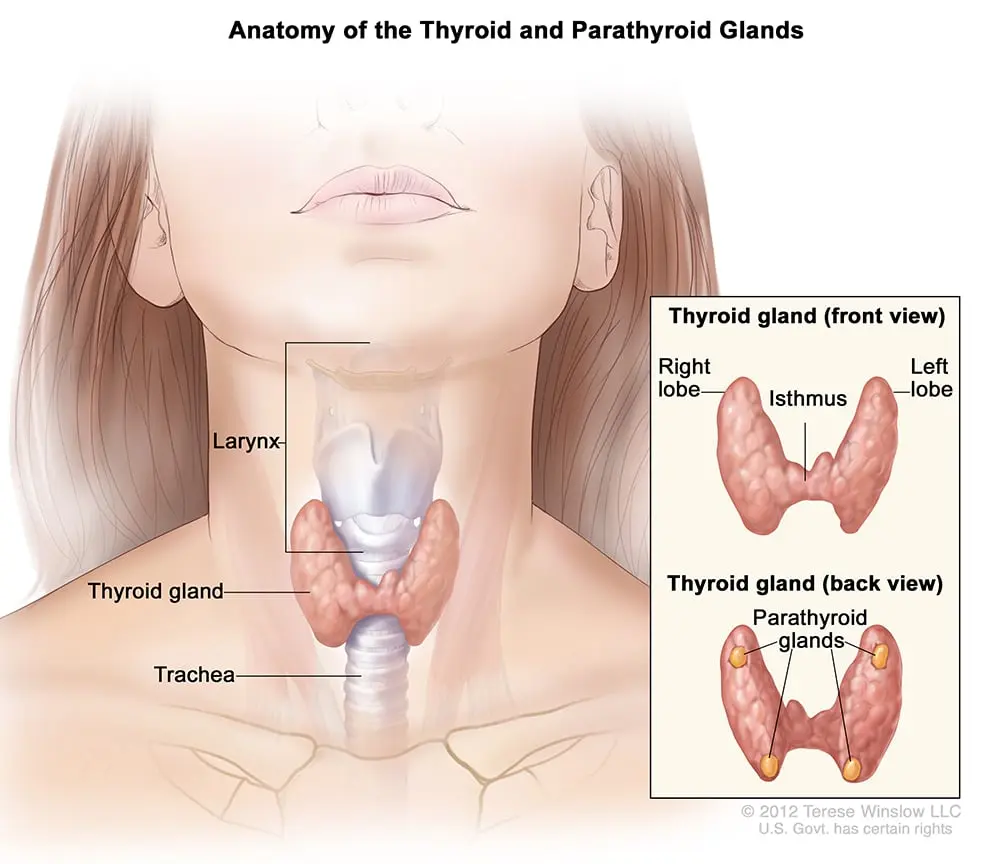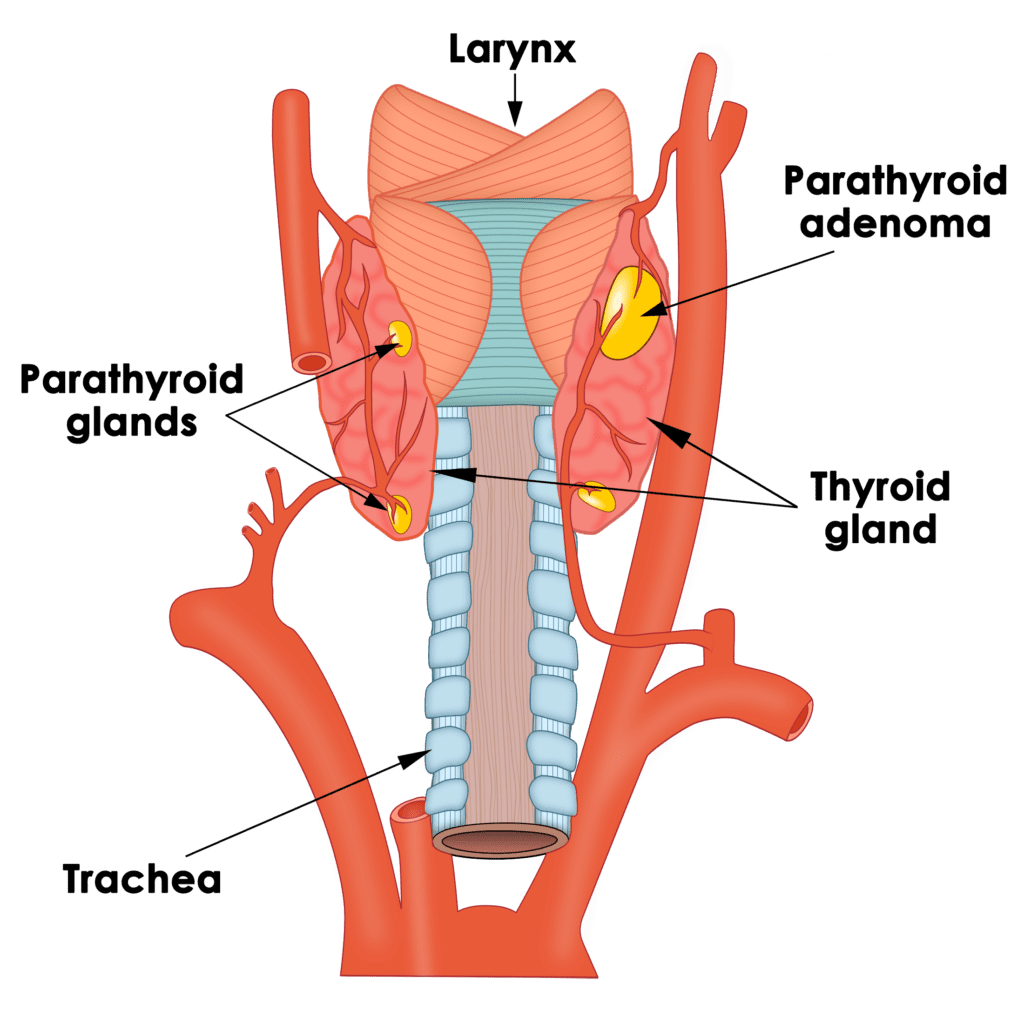Parathyroid surgery, or parathyroidectomy, involves removing one or more parathyroid glands to treat conditions like primary hyperparathyroidism.
The parathyroid glands are four small glands located in your neck, near or attached to the thyroid gland. These tiny glands, each about the size of a grain of rice, play a crucial role in regulating calcium levels in your blood and bones.

Parathyroid surgery, also known as parathyroidectomy, is a procedure to remove one or more of the parathyroid glands. This surgery is typically performed to treat conditions that cause the parathyroid glands to produce too much parathyroid hormone (PTH), leading to high calcium levels in the blood. Dr Muzib Abdul-Razak is an experienced Head and Neck Surgeon and Surgical Oncologist at Hills Surgical Oncology, and specialises in performing parathyroidectomies.
The most common reason for parathyroid surgery is a condition called primary hyperparathyroidism. This occurs when one or more of the parathyroid glands become overactive and produce too much PTH. Other reasons may include:
If left untreated, these conditions can lead to various health problems, including:

A parathyroidectomy is typically performed under general anaesthesia. The specific technique used may vary depending on the patient's condition and the surgeon's expertise. Here's a general overview of the procedure:
The entire procedure usually takes about 1 to 2 hours, depending on how many glands need to be removed. Dr Muzib Abdul-Razak at Hills Surgical Oncology uses minimally invasive techniques when possible, which can result in smaller incisions and faster recovery times.
Before your surgery at Hills Surgical Oncology, you can expect the following:
After your parathyroid surgery at Hills Surgical Oncology:
Recovery from parathyroid surgery is generally quick, but it can vary from person to person. Here's what you can expect:
Like all surgical procedures, parathyroid surgery carries some risks. However, when performed by an experienced surgeon like Dr Muzib Abdul-Razak at Hills Surgical Oncology, complications are rare. Potential risks include:
Dr Muzib Abdul-Razak takes every precaution to minimise these risks and will discuss them with you in detail before the procedure.
Determining whether you need parathyroid surgery involves several factors:
If you're experiencing symptoms or have concerns about your parathyroid health, it's important to consult with your GP or Medical Specialist first.
When it comes to parathyroid surgery, choosing the right surgeon is crucial. Here's why Hills Surgical Oncology, led by Dr Muzib Abdul-Razak, is an excellent choice:
Parathyoid surgery is a common and generally safe procedure that can be highly effective treatments for conditions affecting the parathyroid glands. Head and Neck Surgeons and Surgical Oncologists like Dr Muzib Abdul-Razak can perform this procedure if it's medically required.
So if you're in the north-west Sydney region and are considering a parathyroidectomy or parathyoid surgery, make an appointment to see Dr Muzib Abdul-Razak at Hills Surgical Oncology today. We have consulting rooms conveniently located in Norwest and Wahroonga to answer any questions you have and guide you through your surgical options for your parathyroid condition.

Give our friendly receptionists a call on 1300 560 311 and they can help find a convenient time at all our locations. For urgent appointments, please let our receptionists know and we can try find the earliest time to see you.
Reconstruction with a skin graft is a surgical procedure used to repair areas of missing or damaged skin, often following the removal of tumours in the head and neck region.
A submandibular gland resection is a surgical procedure to remove one of the submandibular glands, often performed to treat tumours, chronic infections, or salivary stones.